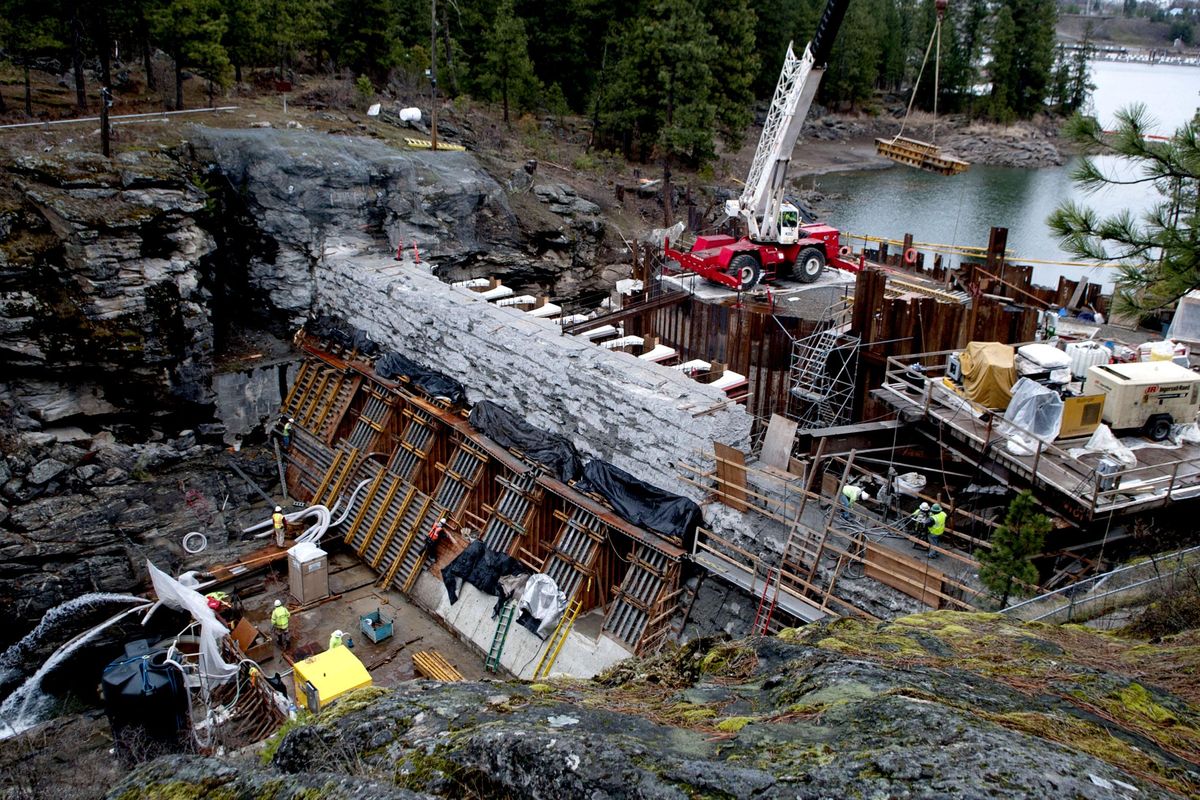Avista files 3-year plan for raising electric and natural gas rates

Avista Utilities is again asking for permission to raise customers’ electric and natural gas rates after an earlier request was denied by Washington regulators.
On Friday, the Spokane-based utility filed a three-year rate plan with the state Utilities and Transportation Commission.
If approved as submitted, the cost of electricity for a typical household would increase to about $100 a month by May 2020. Natural gas bills would go up to about $65 a month in the same timeframe.
After Avista’s request for higher rates this year was turned down last December, utility officials had a series of meetings with state regulators, who said Avista hadn’t made a compelling case for additional revenue.
This time around, “we’re telling a more complete story,” said Casey Fielder, an Avista spokeswoman.
Avista officials said the rate requests are driven by ongoing capital spending to upgrade aging infrastructure, including major renovations at its dams, and new technology, such as a better online payment system. Through 2021, the utility expects to spend about $405 million annually on capital projects.
Some of the spending is for recreation access and wildlife habitat. Fielder said it was required for federal relicensing of Avista’s Spokane River and Clark Fork River dams. Other capital spending is related to cyber security and federal requirements for reliable energy delivery, she said.
Avista averages one outage per customer per year, with average outage times of about two hours.
“We don’t get a lot of complaints from customers about the frequency or duration of outages,” said Kelly Norwood, the company’s vice present of state and federal regulation. “We’re really working to maintain the level of reliability our customers expect.”
Norwood said Avista’s heavy spending on infrastructure comes at a time when the utility’s customer base is growing slowly and per-capita electricity consumption has decreased. Utilities across the nation face similar trend lines, which is causing rates to rise, he said.
In the latest filing, Avista has asked for its first electric rate increase to become effective Sept. 1. The request is based on higher electricity costs for Avista related to changes in contracts with other utilities, Norwood said.
If approved, a typical residential customer’s monthly electric bill would increase from $84.51 per month to $87.09 per month.
Avista is also asking for higher base electric rates, effective May 2018, which would raise monthly rates for a typical household to $95.14.
Base electric rates would further increase by about $2.28 per month in May 2019, and by about $2.44 per month in May 2020, to almost $100.
For natural gas, Avista is asking for higher base rates effective May 2018. If approved, a typical customer’s gas bill would increase from $58.14 per month to $61.39 per month.
Base rates for natural gas would further increase by about $1.60 per month in May 2019, and by about $1.70 in May 2020.
If the three years of rate hikes are approved, Avista would not ask for additional base rate hikes before May 2021. However, rates could still fluctuate during that time based on wholesale power prices.
The Utilities and Transportation Commission is the state agency that regulates private, investor-owned utilities in Washington. Staff members will review Avista’s request and make a recommendation to the three-member commission.
The commission has up to 11 months to review Avista’s requests and will accept public comments during the process.
Norwood said that during discussions with the Utilities and Transportation Commission, regulators expressed interest in Avista presenting rate requests for a period of several years.
“I think it has benefits,” Norwood said. “It gives customers some predictability in future rates.”
In a related matter, Avista’s 2016 electric rates are being challenged by the Washington Attorney General’s Office.
Though base electric rates dropped that year, the AG said that rates should have decreased even more. The Utilities and Transportation Commission upheld Avista’s 2016 rates and the AG’s office has filed an appeal. The matter is expected to be heard later this year or early next year in the state court of appeals.